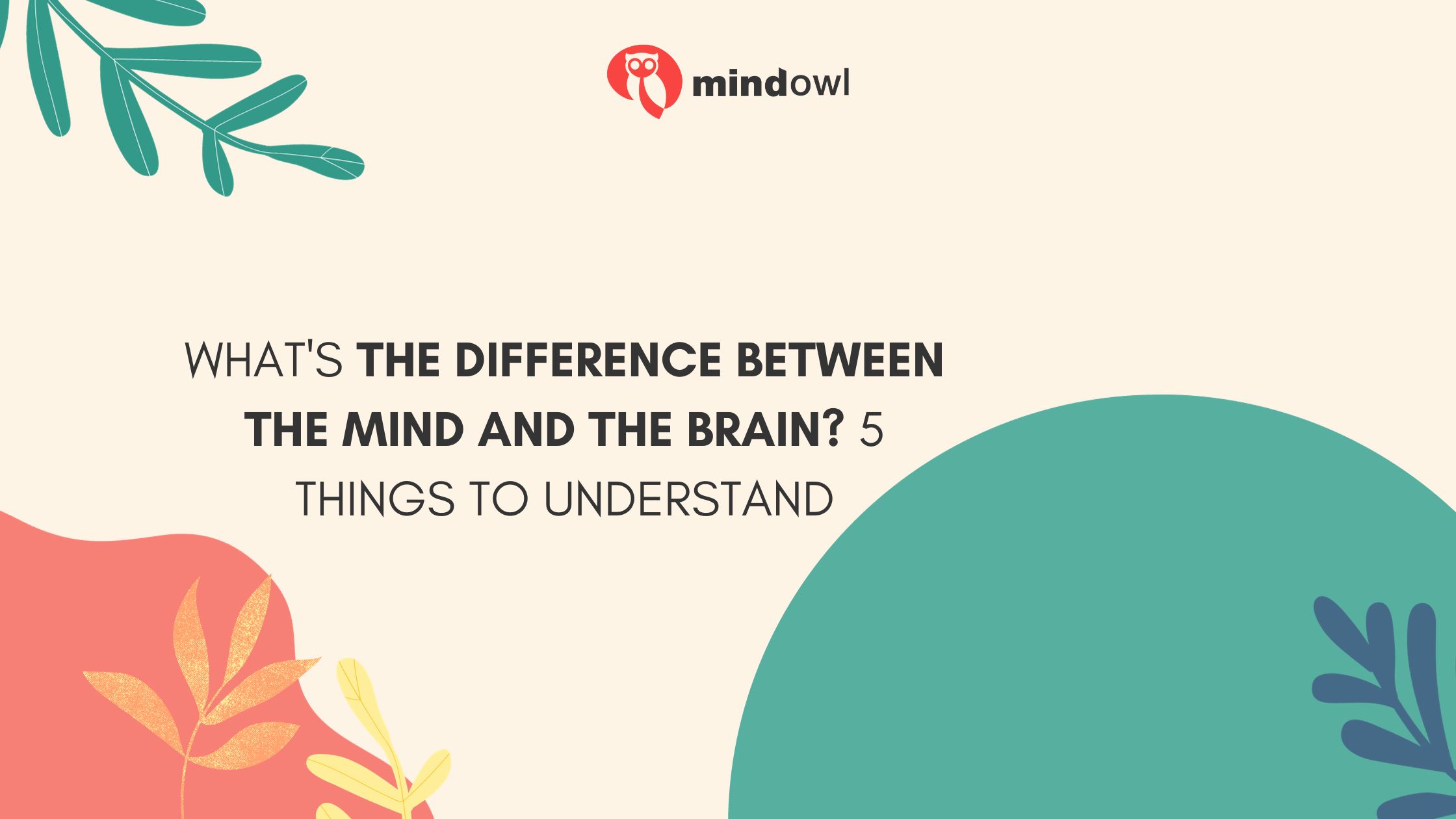
Image Source: Unsplash
Have you ever wondered about the difference between your mind and your brain?
While these two terms are often used interchangeably, they represent distinctly different concepts in the mysterious world of neuroscience. As we venture on this thought-provoking journey, we’ll untangle these ideas to better comprehend how our body truly works.
What is the Brain?
The brain is an organ and the physical entity that sits inside your skull. It’s part of your body’s central nervous system, carrying billions of nerve cells. These cells, or neurons, are responsible for transmitting signals throughout your body. These range from pain to pleasure signals.
The brain controls most bodily functions. From regulating your breathing to coordinating muscle movements, it does it all. It’s involved in everything you think, feel, and do.
When people are referring to disorders of the “brain,” doctors are typically referring to alignments that exhibit physical symptoms but don’t directly cause a mental health effect. Some examples include Parkinson’s disease, Alzheimer’s disease, and dementia.
Doctors recommend MRI to rule out neurodegenerative disorders, providing brain images for identifying abnormalities. PET scans and cerebrospinal fluid analysis assess brain function and detect specific biomarkers. These measures are crucial for accurately differentiating neurological disorders, as symptoms may overlap. Early diagnosis is vital for timely treatment and effective disease management, offering valuable prognostic information for targeted interventions and enhancing overall patient and family quality of life.
Test selection depends on the patient’s symptoms, medical history, and suspected disorder, requiring a collaborative approach involving neurologists, radiologists, and specialists for a comprehensive evaluation. Regular follow-ups monitor disease progression, allowing adjustments to treatment plans. These diagnostic procedures play a pivotal role in facilitating early intervention, personalized care, and informed decision-making in managing neurodegenerative disorders.
Medical professions like neurology depend on understanding the brain’s function and structure. For these professions, accurate medical billing for neurology tools are necessary to ensure processes run smoothly. Doctors who work with the brain are called neurologists.
What is the Mind?
Unlike the brain, you can’t pinpoint the mind to a specific physical location in your body. It’s more of a conceptual entity that embodies consciousness, thought processes, and intellectual abilities. With that said, the idea of “what a mind is” has been debated for thousands of years.
What we do know is that the mind is where you perceive and interpret reality. Here lies your capacity for emotions and subjective experiences. Your thoughts, dreams, and memories all take place within your mind. It also encompasses feelings of love or fear, components that make our human experience rich. Our brain is the organ that supports these thoughts and feelings.
When people are referring to disorders of the “mind,” they’re often referring to alignments that have primarily mental health symptoms, even if there’s a physical component. Some examples include ADHD, bipolar disorder, autism, depression, anxiety, and schizophrenia.
Councilors, psychiatrists, therapists, and psychologists are some of the professions that work with disorders of the mind. Many of these professions don’t require going to medical school.
Psychiatrists and medical doctors prescribe medication and tackle severe cases. Therapists with diverse backgrounds employ various therapeutic methods. On the other hand, psychologists holding doctoral degrees focus on assessment, research, and non-medication-based therapy.
Collaboration among these professionals is common, providing comprehensive mental health care tailored to individuals’ needs, combining counseling, therapy, and medication when necessary. The choice of professional depends on the nature and severity of the mental health concern. Together, they play vital roles in supporting mental well-being.
Brain vs. Mind: The Main Differences
In the most simplest terms, the mind is our ability to feel, think, and engage with the world, while the brain refers to the physical organ that supports our mind’s ability to perform these functions.
To summarize, these are the main differences between the brain and mind:
- The brain is made up of neurons and blood vessels, and it’s something you can physically point to. The mind is abstract and can’t be appropriately located.
- The brain controls a person’s emotions and movements. The mind is what gives us morality, reasoning, and understanding and is impacted by our emotions.
- The definition of what a brain is has been uncontested for centuries. The definition of what the mind is has been contested for centuries by philosophers and scholars.
- Disorders of the brain exhibit physical symptoms but not always a mental effect. Disorders of the mind exhibit primarily mental health and mood-based symptoms.
- A neurologist will work with alignments that affect the brain and nervous system. A psychiatrist/counselor/therapist, etc., will work with alignments affecting the mind.
The brain is the most fascinating organ in the human body. After centuries of researching it, we still don’t know it fully. The mind is an even bigger puzzle that may never be solved.
In Conclusion…
In unraveling the enigma of the brain versus the mind, we explore not just our cerebral matter, but our very essence. But remember, this is merely the tip of the iceberg in understanding this complex brain and mind puzzle. There’s a whole universe inside us yet to discover!
MindOwl Founder – My own struggles in life have led me to this path of understanding the human condition. I graduated with a bachelor’s degree in philosophy before completing a master’s degree in psychology at Regent’s University London. I then completed a postgraduate diploma in philosophical counselling before being trained in ACT (Acceptance and commitment therapy).
I’ve spent the last eight years studying the encounter of meditative practices with modern psychology.

